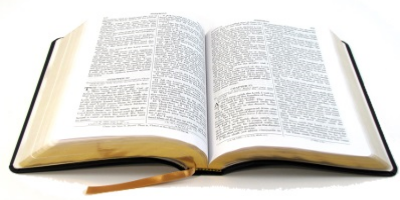Is there a large difference between the Ancient Near Eastern perspective of the Hebrews and our Modern Western perspective? From my research and studies, I would have to say there is not only a difference, but a large chasm between the two. The only way to cross this chasm is to construct a bridge that will span these two different, and oftentimes opposing, perspectives. That bridge is built by studying the Ancient Hebrew culture, lifestyle and philosophy.
How would you interpret the following passage from the book of Psalms?
The LORD sitteth upon the flood; yea, the LORD sitteth King for ever. (KJV Psalm 29:10)
This passage is a parallelism, meaning that the first part of the passage is a parallel, and has the same meaning as the second part. But before one can see and understand the parallelism, one must first understand each Hebrew word correctly and then secondly, interpret those words from an Hebraic perspective.
Here is the passage in the Hebrew.
יהוה למבול ישב וישב יהוה מלך לעולם
(YHWH l'mabul yashav vai'yeshev YHWH melekh l'olam )
The Hebrew word translated as "sitteth" is the verb ישב (yashav), literally meaning to "dwell." The word למבול (l'mabul) includes the prefix ל (l) meaning "to" or "toward" and the word מבול (mabul) meaning "flood." The word מלך (melekh) means "king," but not a king in the modern sense where the king "sits on a throne and rules from afar," but one who "walks among the people and provides for their needs." The word לעולם (l'olam) includes the prefix ל (l) meaning "to" or "toward" and the word עולם (olam), which is usually translated in the abstract as "eternal," "eternity" or "forever," but hebraically has the concrete meaning of "horizon."
In our modern culture, a flood always brings to mind death and destruction and if we use this interpretation of a flood in Psalm 29:10, we will never understand what the Psalmist was trying to tell us. In the Ancient Hebrew mind a flood always brings to mind life and prosperity, not death and destruction. In a desert region such as in the land of Israel, water is very scarce and the floods, coming down from the mountains, bring the much-needed water and it also deposits nutrient rich soil on the land that makes the growing of crops possible.
If we revisit Psalm 29:10 and interpret it from a Hebraic perspective we have the following understanding.
YHWH dwells as the flood that covers all the land spreading water and nutrients and YHWH is the king that spreads life and prosperity through all the land as far as one can see.
Like what you’re discovering? Continue the journey from Bible reader to translator.
|






